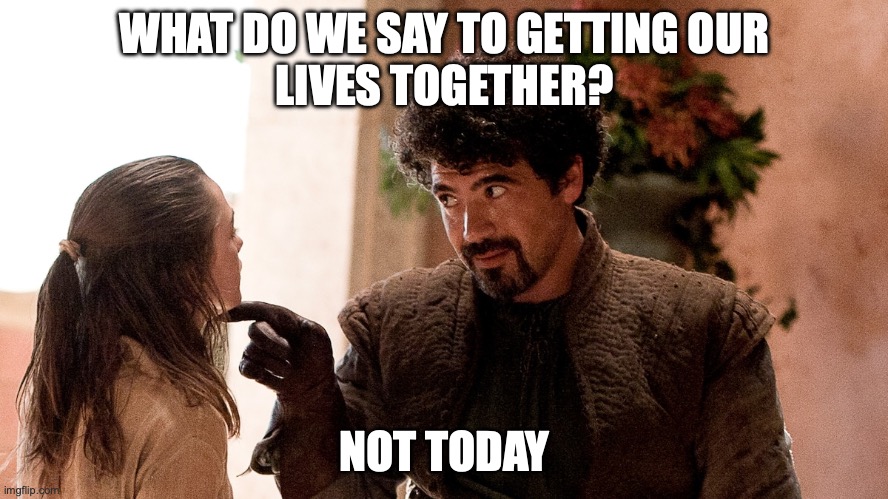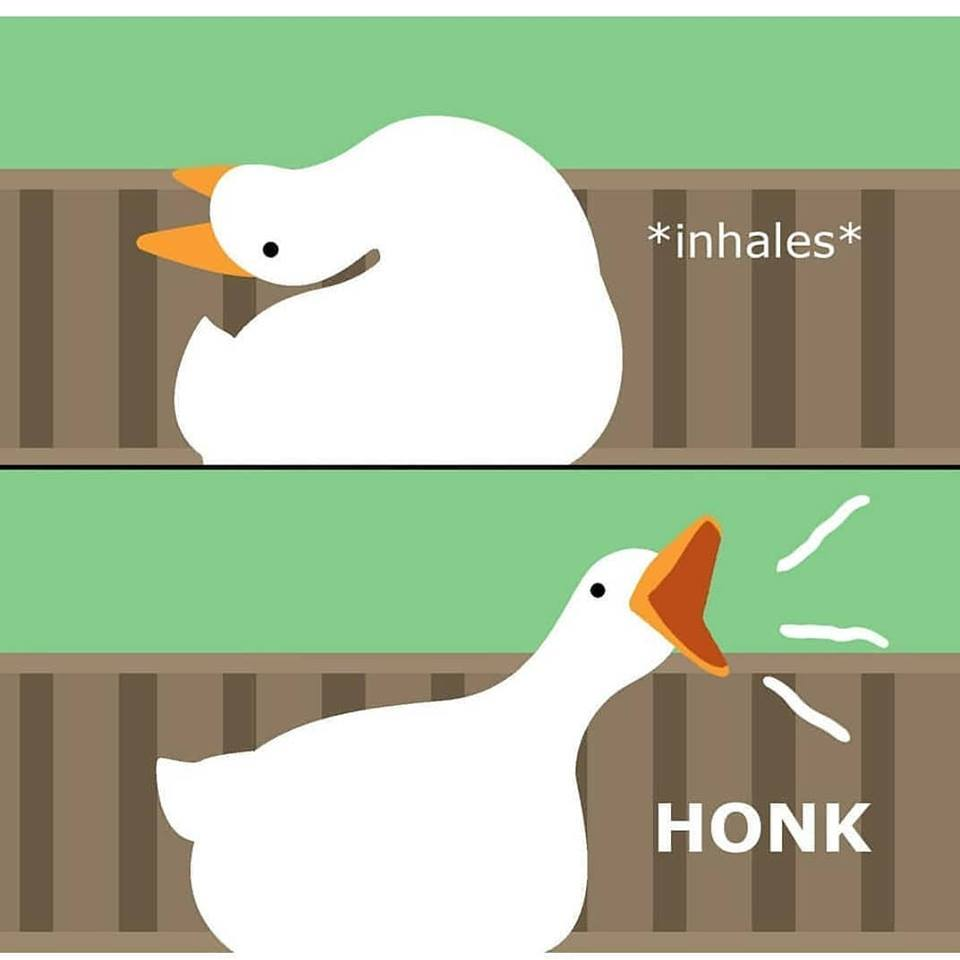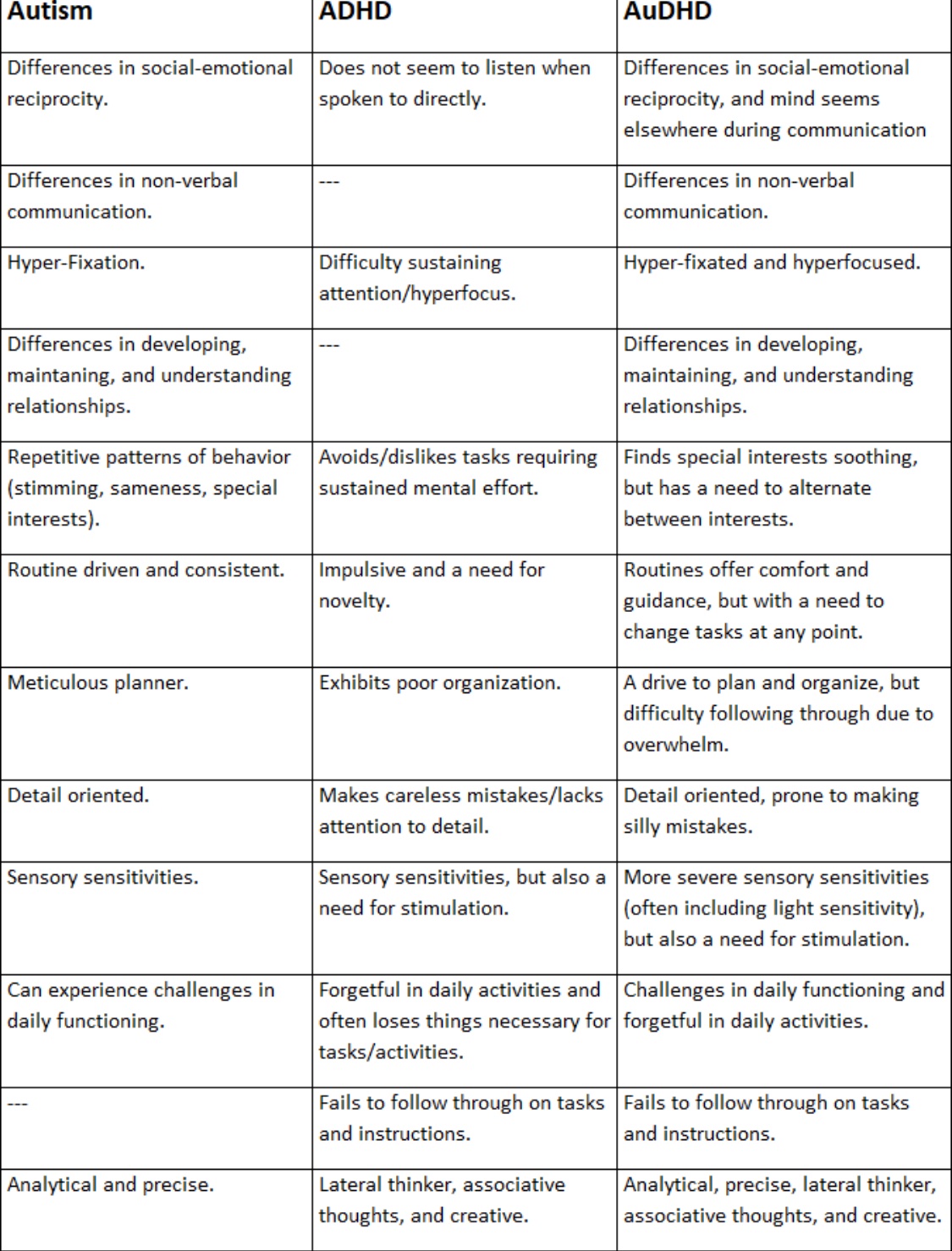A lot of people still think autism means “mentally handicapped”
It’s important to understand this nuance. Some autistic people are also mentally handicapped, but most autistic people are like what you see above. Where almost no one can tell unless they know what signs to look for.
I did really bad in school, but most people seem to think I’m smart. I did notice that all my classmates who did really well in school were really dumb, I had to explain every implicit statement in verbose detail to them, but all my classmates that got shitty grades along with me were very easy to communicate with.
In America a diagnosis is a prerequisite for qualifying for services under any kind of insurance.
As a result a diagnosis is generally viewed entirely under the lens of qualifying for services and support billable to insurance.
And the problem with spectrums is that everyone is on them. So there are plenty of people who do not need services or support who are also neurodivergent. Though it appears this is generally what autistic people who aren’t in need of services or support are often called.
The ND-radar is real.
There are so many undiagnosed people walking around just wondering why they can’t seem to get their life together the way NTs expect them to, blaming themselves for it. I try to promote self-acceptance in the broadest sense and see what happens.
Wow, that last sentence really hit home for me. Maybe one day I’ll get my life together… one day…

Yes, my psychiatrist told me how his adult patients had some patterns in their lives. I started to pay attention and I can’t believe how similar our stories can be. Anecdotes that are the same, the same challenges… Now I can kindly suggest an evaluation when I see someone struggling 👍.
It’s a community to discuss autism and autism related issues, not an exclusive club for autists, so your perspective is welcome :)
Yeah, there’s already an exclusive club for autistics, it’s my friend circle apparently
Secondary club: Factorio LAN.
Fun story: Apparently basically everyone in my family highly suspected it but I never got referred for an assessment when I was younger because my mum thought all children acted like that. So whenever I was telling people about my diagnosis they really weren’t surprised 🤣
(I love my mum, she did what she thought was best given the circumstances, and that’s okay)
A psychologist at a separate occasion once told my mum that it might be a good idea to have me assessed. Never happened, though I don’t blame her, she had a lot of stuff to deal with herself.
It’s kind of a joke at family gatherings that most of us are on the spectrum.
My mom told me when I got diagnosed as an adult that they suspected it when I was a kid, but never had me tested because my speech development wasn’t delayed. In fact I was unusually well-spoken for someone my age as a child. What they didn’t realize is that this is the main distinction between the former Asperger’s diagnosis and the former “high functioning autism” diagnosis.
Yeah my first sentence is an oft-mentioned story because I rarely spoke at all, then said “please pass the margarine” at a family dinner.
Never tested though lol
Sounds like my kid, who is diagnosed AuDHD and did this exact thing.
No Shit!?
Validating af. Thank you :)
I know i am. Makes face to face interaction a dicy deal at best and an impossibility at worst. Makes interviews extremely uncomfortable
I think I am autistic
You do have 12GB of pepes…
Autism and many other DSM diagnosis’ don’t really describe anything than arbitrarily grouped symptoms, if you have those abritrarily grouped symptoms you are “autistic” but that doesn’t mean it has the same cause, effect, or treatment as others with similar symptoms.
in many cases autism is what makes me such a good worker
The ability to hyperfocus on a problem to the detriment of my relationships and physical health is definitely something employers value
Except for when they value pivoting 8 times a day.
Oh yeah, I’m real bad at pivoting. Both literally and figuratively, because I’m autistic and I can’t walk.
not enough, I’d like to be paid proportional to the exploitation of my self sabotage
Hazard pay.
My mom was just like “do you think you could get more scholarships with an official diagnosis?” after mentioning a friend suggested I was autistic. Don’t think I’ve ever had someone doubt it. Guess I’m just too weird. 😨
I like how practical your mom is lol
Those student loans are no joke.
Perhaps she’s on t’spectrum.
The same day I got my diagnosis (in my 40s) I told both of my parents.
My Mom’s response: “Well, I always knew you were special!” My Dad’s response: “That’s bullshit!”
Why is this so true
I See You

I’m not going to debate about whether anyone could be a clinically undiagnosed case or how often that occurs with any demographic. All I am going to say is that if you self-diagnose any neurological condition, you’ve got a better chance of being wrong than you do right. This is not open for debate. If this statement upsets you, or you would like to challenge it, too bad. You cannot play pretend forever.
This is not open for debate
I debate your authority to declare that there will be no debate, I tell you whut.
I debate your ability to debate my authority when no authority exists in the principality of thought, especially when I’ve made clear my disinterest in debating the matter.

I love Jeremy Andrew Davis’s video on this topic:
And I don’t understand autistic people who gatekeep autism and say that people can’t research and validate their own neurovariance as autistic. You’ve experienced all the ableism levied against you and your autism, right? Why would anyone who is NOT autistic CHOOSE that for themselves!?
Wanting to have an autism diagnosis certainly isn’t “neurotypical” behavior. Maybe you should look at why people identifying as autistic makes you uncomfortable.
Thanks for sharing this! I’m saving a copy to show others.
My autism was missed and I went undiagnosed for about 30 years. I think there are a lot of people that were diagnosed at a younger age that don’t understand just how expensive and difficult it can be to get diagnosed as an adult. Luckily, I still have a living parent or they wouldn’t have done the evaluation at all. It took months and that’s if you don’t count the 10+ years that I requested the evaluation. Several therapists had to comment to push my insurance company to even consider it. I tried to go around my insurance at one point and just pay the thousands it would have cost but had trouble finding anyone local and competent that wanted to diagnose an adult.
It’s not as simple as “call the doctor and ask” for a lot of adults. There are so many barriers and some you can’t do anything about.
please see my other comment from a bit ago for my reasoning here
It’s absolutely open for debate and not obviously true
I’m still celebrating 4/20, I’m not taking time away from that to argue with strangers the semantics about how various fallacies reduce the efficacy of self-diagnoses, because even if I were somehow able to expound upon it succinctly it would still be dismissed because people don’t like being told they are wrongfully believing something and even less so that their reasoning is flawed.
Happy 4/23! You made a very specific statistical claim that definitely requires evidence if you want anyone to take you seriously:
if you self-diagnose any neurological condition, you’ve got a better chance of being wrong than you do right
Edit: another comment of yours about your knowledge of any data justifying this claim suggests that you pulled it out of your ass
If we do, I’d be intensely interested to see them. But something tells me this is one of those experiments where data collection and validation presents challenges.
Happy Tuesday,
I did make such a claim, but I reckon/imagine that any experiment conducted to test the hypothesis would be unavoidably confounded due to the nature of the subject-- how are you going to formulate a fool-proof and unquestionable experiment process for this? I’m interested to hear any ideas you might have, but any I could come up with seemed confounded enough to not even be worth mentioning, but perhaps someone more acquainted with such experiments could devise a sufficient method.
Statistics and scientific value aside, I stand by my statement because, in a very loose sense, it is generally applicable as a truth-y function, where certain assumptions are made:
- Assume demographic is generally highschool-graduate education level
- Assume relevant research literature present to demographic is diluted, second-hand-- majority might primarily source info from blogs, media articles, WebMD and perhaps available scientific literature secondarily (not their fault, science publication access is criminally shit)
- Assume little or sparse general exposure to relevant clinical cases among majority
- Assume minority of <20% have relevant experience in the field or have otherwise underwent traditional schooling/training to attain career with exposure
So yes, while I did think the wording up on the spot, I have given the topic consideration prior and following my post. And I still stand by it, though perhaps I could be more concise: the majority of individuals who seek to diagnose themselves do not typically possess the insights and familiarity necessary to reach a sound diagnosis. Furthermore, a professional qualified to diagnose others might refrain from diagnosing themselves due to experience. Therefore, it can safely be assumed that the majority of individuals who engage in self-diagnoses of neurological symptoms will inaccurately characterize their condition.
I hope that helps. Have a good one.
I also want to just add that if anyone is by chance offended that I am insinuating they may have misdiagnosed themselves-- good, because I’m not insinuating it, I am betting on it. And as I have hopefully made painfully clear, I am immovably confident in my stance on self-diagnoses particularly as it relates to ASD. I am open to further discussion surrounding this, but I will never yield this position because, quite simply, you cannot reduce what I have experienced in life to something you think you have. I am telling you now, and I very much do not want to elaborate, anyone who says today they may have undiagnosed ASD would not want to have been diagnosed with ASD as a kid. It was not helpful, it was not fun, it did irreparable harm. Please, just trust me when I say you do not know this brand of hell.
I am an autistic male. They used to sterilize us. The term schizoid literally refers to us. It wasn’t until 1963 that they stopped putting us in mental institutions. Even then, it was still easy to become ward of the state. Medicaid, social security, and charity are the only things keeping adults like my little brother from being unsustainable in a home environment. They used to live in fear of having autism. Fetuses were terminated as a result of speculative diagnoses.
By self diagnosing yourself, you are reducing decades of unimaginable personal suffering among untold individuals and families across the nation to equate to your quirks.
So please, do not diminish this blight on our country’s mental health record, or it stands to be forgotten. And I am sorry for the wake-up call.
If anyone knows your life, it is yourself, so when you know the diagnostic criteria, why wouldn’t you be qualified to self-diagnose?
As an anecdote: I have researched (among other conditions) ADHD and Autism so deeply, that I know probably more than the psychiatrics I had to do with about those (also probably not exactly ND behavior). Having all your behavior be confirmed by someone else is good anyway, but I don’t see a big issue with self-diagnosis when you’ve done your research (and took a few questionaires).
I was diagnosed with Asperger’s syndrome when I was in grade school, after my little brother was diagnosed with Kanner’s syndrome. There was initial skepticism that my diagnosis may have been decided by my relation to my little brother, but that was dispelled after it was correlated with various unexplained psychobehavioral traits I’d exhibited growing up, and the presence of a shared birth mark that suggests a contributing genetic factor. There’s speculation around what caused this genetic factor, but it’s potentially linked with both parents’ military service.
Today, I typically don’t bother to tell people about my diagnosis unless it ever comes up, because I think people view it as more significant than it is and I don’t want people to change the way they see me based solely on their misunderstanding of or prior experiences with ASD. Most people say they would never be able to tell and sometimes even have a hard time believing that I am on the spectrum. Which is good, because it means I’m being allowed to live a normal life likr I’ve always wanted instead of being seen as needing some assistance or handicap.
I would have much rather that I was never diagnosed, though my brother’s was entirely necessary. My life trajectory would have been significantly better across many dimensions. The knowledge of my diagnosis only ever hindered me throughout my childhood development stages. It might not be too much to say that it traumatized me. I spent the next decade building and refining a mask to hide behind, to shield myself and maintain full control over how my presence is perceived. And now I can’t take it off.
What’s worse is when I came to find that, as the old adage goes, we all wear masks of our own creation. The only thing making mine perhaps notably distinct is that it’s creation and refinement was feverishly dwelt over for almost two thirds of my life now. How I was perceived was always in the forefront of my mind, whether or not I had an actionable plan to change. Every word I spoke, every move I made, was either in an attempt to appear normal or hopeless abandon as I lost confidence in my ability to hide in plain sight. It damn near killed me.
For the very reason of this life experience I have expounded here before you today, I do not respect or encourage any element of self-diagnoses that could lead an individual to suffer the torments I did. And before you say anything about resources – if you are Asperger’s, odds are they won’t be enough and many of them are unnecessary concessions that will hinder you.
you’ve got a better chance of being wrong than you do right
Although that “feels” reasonable, I wonder whether we have actual numbers on this.
If we do, I’d be intensely interested to see them. But something tells me this is one of those experiments where data collection and validation presents challenges.
Two of the people i told i had autism were confused, replying “but you dont have any hearing problems”
For context: “aud” is the romanian word for I hear
I met a friend with autism when we worked together years ago. One day he came to me and said “I’ve been talking to some people and doing some tests and it looks like I might have autism.”
I looked at him for a few seconds and said “wait, you didn’t know?”
“You knew and didn’t say anything?!”
“Well I thought you knew! It’s not really casual work chat ‘hey man, how was your weekend? BTW looks like you’re a bit autistic’”I have a similar thing with a friend. He’s mid 30s and at that point I am very sure he is on the spectrum. But I don’t know how to speak to him about it because I think he doesn’t know. He had a lot of difficulties in life, both social and academic, and it feels like it could go one of three ways. Either he will be surprised, look into it, and finally make sense of everything. Or he will be surprised and then be even sadder because someone saw him as autistic. Or he actually does know and will be sad that it is so obvious that I noticed.
First of all - don’t think of autism as a bad thing. It’s a perfectly normal (and even valuable) way for someone’s brain to be wired.
Second, a kind and casual way of approaching it is “Hey, have you ever been checked for ADHD or autism?” It’s especially useful if they bring up any of the usual difficulties that ND folks experience far more often than our NT peers.
That’s really not true beyond the mildest of mild cases. I worked with autistic adults and it really was not helping them.
Yea, exactly. It’s a tough one, but I do often wonder if I should have mentioned something
I too have an upward facing triangle mouth.
(`-ㅿ-´)
I was diagnosed with autism and I don’t believe it. But that’s just the ADHD balancing shit out.
I remember watching some shitty reality show on Netflix and one of the contestants was very obviously ADHD and out of control because of it. And all I could think was… I’m so glad I have Autism to balance out the ADHD, otherwise I’d probably be like him
please excuse my ignorance but how do they balance out? my understanding was that adhd makes it hard to pay attention to things and you tend to be hyperactive while autism makes it difficult to understand social norms and situations, how would it help your deficit in attention to be less aware of how to interact with other people? wouldn’t it just make it worse? or is it just because you just don’t care if you’re hyper and not paying attention because social norms don’t interest you? genuinely curious and eager to learn

This chart explains it better than I could, but basically you are right in the sense that some things can definitely be worse with both. However, some things can somewhat balance each other out as well.
In the show I watched, the dude seemed to have such bad ADHD that (for example) he’d be in a serious conversation and suddenly hold up a fruit and be like “Man, tangerines are so good. You wanna bite??”, and it was like he wasn’t even serious about the conversation at all. He did shit like that constantly, and didn’t seem to be aware of how much he was pissing people off because of it. For me… I definitely start to get antsy and semi-checkout of a conversation if I’m not interested or knowledgeable about the topic at hand and it’s going on too long. However, because i’ve learned to mask in social conversations and gotten really good at reading people’s reactions, I can usually tell if I’m doing anything to annoy someone. And so, I can pull myself back on track through a conversation without too much difficulties, most of the time anyway. At the very least, I would never just let myself do what the guy in the show did, as I know that would piss people off!
interesting, thanks for the detailed response! So it seems that learning to live with autism you have trained skills to compensate and these skills have helped you in other parts of your life like dealing with ADHD?









